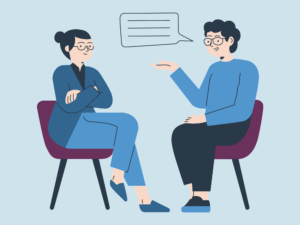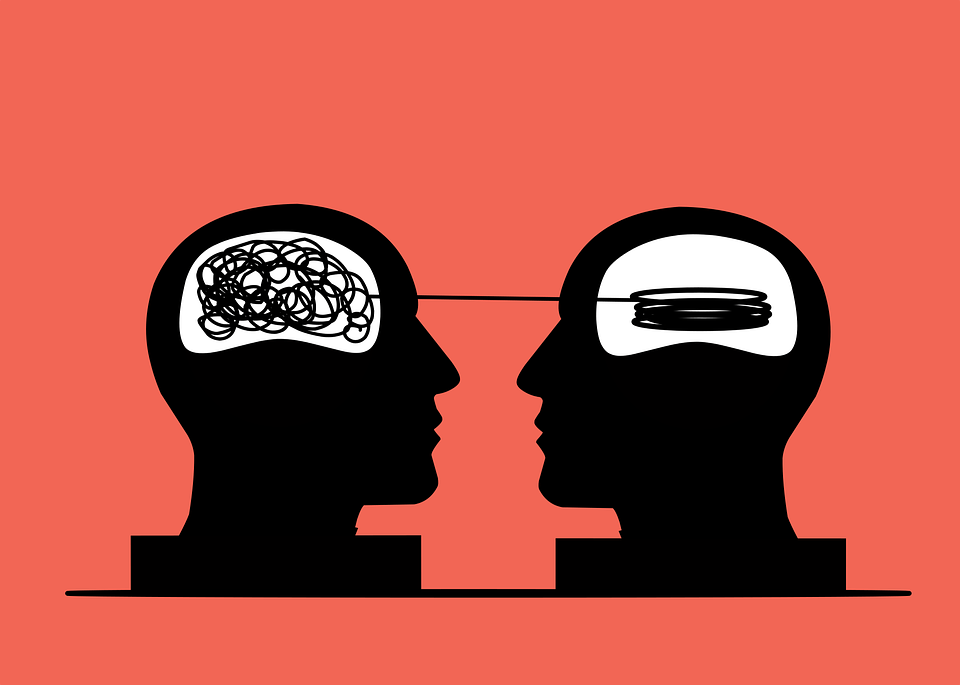ADHD, or Attention Deficit Hyperactivity Disorder, can occur in both children & adults. It causes inattention, hyperactivity, & impulsivity. Dialectical behavior therapy is an approach that can help manage ADHD symptoms. In this blog, we will explore the potential use of DBT techniques for managing ADHD symptoms. We will also discuss Seek help from a qualified mental health professional for tailored & effective ADHD management strategies.
Contents
What Is DBT?
 DBT stands for Dialectical Behavior Therapy. It is a type of therapy developed by psychologist Marsha Linehan to treat mental health conditions such as borderline personality disorder. DBT combines elements of cognitive-behavioral therapy (CBT) with mindfulness techniques, emotional regulation skills, & interpersonal effectiveness skills.
DBT stands for Dialectical Behavior Therapy. It is a type of therapy developed by psychologist Marsha Linehan to treat mental health conditions such as borderline personality disorder. DBT combines elements of cognitive-behavioral therapy (CBT) with mindfulness techniques, emotional regulation skills, & interpersonal effectiveness skills.
It focuses on helping individuals develop coping strategies for managing distress, improving emotional regulation, and building healthier relationships. DBT is effective in reducing self-harm behaviors, and suicidal ideation, and improving overall mental well-being.
Is DBT A Right Approach For ADHD?
While DBT was originally developed to treat conditions like borderline personality disorder, it is not typically used as a primary treatment for ADHD (Attention-Deficit/Hyperactivity Disorder). ADHD is a neurodevelopmental disorder that requires a different approach, such as medication management, behavioral therapy, and psychoeducation. However, some elements of DBT, such as mindfulness techniques & emotional regulation skills, may be incorporated into a comprehensive treatment plan for individuals with ADHD to address specific challenges related to emotion regulation & impulsivity.
Techniques Used In DBT For ADHD
Some techniques from DBT that may help manage ADHD symptoms include:
Mindfulness
DBT places a strong emphasis on mindfulness, which involves paying non-judgmental attention to the present moment. Mindfulness techniques, such as mindful breathing or meditation, can help individuals with ADHD improve their ability to focus & sustain attention, which are common challenges in ADHD. By practicing mindfulness, individuals with ADHD can learn to become more aware of their thoughts, emotions, & behaviors in the present moment, helping them better regulate their impulses & manage their symptoms.
Emotional Regulation Skills
DBT teaches skills for identifying, understanding, & managing emotions effectively. Many individuals with ADHD may struggle with emotional dysregulation, experiencing intense & fluctuating emotions that can impact their behavior and relationships. DBT techniques for emotional regulation, such as identifying and labeling emotions, learning healthy coping strategies for managing distressing emotions, & practicing self-soothing techniques, can help individuals with ADHD better understand & manage their emotions, reducing impulsivity and improving emotional stability.
Interpersonal Effectiveness Skills
DBT includes skills training in interpersonal effectiveness, which focuses on improving communication and relationship skills. Many individuals with ADHD may struggle with social interactions, impulsivity, and difficulties in maintaining relationships due to challenges with impulsivity, hyperactivity, or inattention. DBT techniques for interpersonal effectiveness, such as assertiveness training, effective communication, and problem-solving in relationships, can help individuals with ADHD in managing social interactions & relationships more effectively, reduce conflicts, & improve interpersonal connections.
Problem-Solving Strategies
 DBT includes problem-solving strategies that can be helpful for individuals with ADHD in managing challenges related to organization, planning, and time management. These skills can be particularly valuable in addressing executive function deficits, which are common in ADHD.
DBT includes problem-solving strategies that can be helpful for individuals with ADHD in managing challenges related to organization, planning, and time management. These skills can be particularly valuable in addressing executive function deficits, which are common in ADHD.
DBT techniques for problem-solving, such as identifying problems, generating potential solutions, and evaluating their effectiveness, can help individuals with ADHD learn effective problem-solving skills and develop strategies to better manage day-to-day challenges.
Benefits Of Seeking DBT For ADHD
While DBT is not typically used as a primary treatment for ADHD, incorporating elements of DBT techniques into a comprehensive treatment plan for individuals with ADHD may offer some potential benefits, including:
- Improved Emotion Regulation: DBT teaches skills for understanding & managing emotions effectively, which can be particularly helpful for individuals with ADHD who may struggle with emotional dysregulation, impulsivity, and mood swings.
- Enhanced Mindfulness and Focus: Mindfulness techniques in DBT for ADHD can improve focus, attention, and self-awareness, and reduce distraction & impulsivity.
- Better Social Skills: It focuses on improving interpersonal effectiveness skills, which can help individuals with ADHD in managing social interactions and relationships more effectively. As a result, this can reduce conflicts, and improve communication skills.
- Enhanced Problem-Solving Skills: This type of therapy includes problem-solving strategies that can help individuals with ADHD learn effective strategies for managing challenges related to organization, planning, and time management, which are often areas of difficulty for individuals with ADHD.
- Enhanced Coping Skills: DBT teaches coping skills for managing distress, such as distress tolerance and self-soothing techniques, which can be beneficial for individuals with ADHD who may experience frustration, stress, and impulsive behaviors related to ADHD symptoms.
How To Find DBT For ADHD?
 There are steps you can take to find appropriate treatment options for ADHD that may incorporate elements of DBT or other evidence-based therapies. Here are some suggestions:
There are steps you can take to find appropriate treatment options for ADHD that may incorporate elements of DBT or other evidence-based therapies. Here are some suggestions:
- Consult with a Mental Health Professional: Start by consulting with a qualified mental health professional, such as a psychiatrist, psychologist, or therapist, who specializes in ADHD. They can assess your symptoms and develop a comprehensive treatment plan tailored to your needs, which may include a combination of medication, behavioral therapy, and other interventions.
- Research ADHD-Specific Therapies: There are evidence-based therapies for ADHD. Such as cognitive-behavioral therapy (CBT) and behavioral therapy, which may incorporate some overlapping techniques with DBT. Research and inquire about these therapies and their availability in your area.
- Seek ADHD Support Groups: Joining ADHD support groups or communities may provide you with information and resources on different treatment options, including therapies that may incorporate DBT or other approaches. Peer support groups or online forums can help connect with others who have ADHD and learn from their experiences.
- Collaborate with Your Mental Health Professional: Work collaboratively with your mental health professional to develop an individualized treatment plan that addresses your specific needs and symptoms. They can help guide you toward appropriate treatment options, including therapies that may incorporate DBT or other evidence-based approaches.
- MantraCare: MantraCare is a mental health platform that provides online counseling services. You can visit ‘www.mantracare.org’ to find licensed therapists who specialize in DBT for ADHD. So instead of searching millions of websites, you can directly contact MantraCare for affordable therapy services.
Conclusion
In conclusion, some elements of DBT (Dialectical Behavior Therapy) techniques may incorporate to form a comprehensive treatment plan for individuals with ADHD to address specific challenges related to emotion regulation and impulsivity. It’s important to consult with a qualified mental health professional to develop an individualized treatment plan that best meets your needs. Remember, seeking help from a qualified mental health professional is essential in managing ADHD effectively.
For more information, please contact MantraCare. ADHD is a neurodevelopmental disorder involving difficulty paying attention, hyperactivity, and impulsivity. If you have any queries regarding Online ADHD Counseling experienced therapists at MantraCare can help: Book a trial ADHD therapy session.


